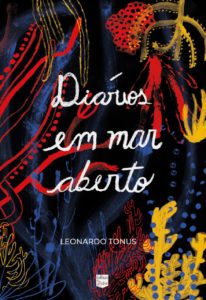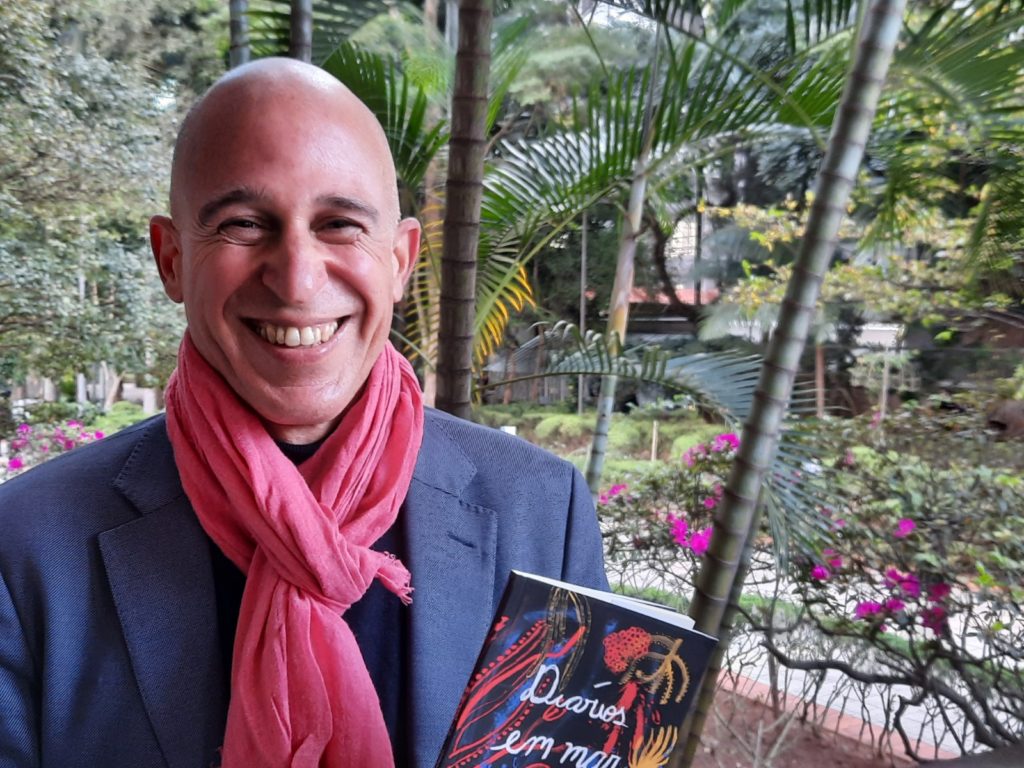São Paulo – Brazilian Leonardo Tonus was invited to participate in two important literary events in the North African region, or the Maghreb, this June. The professor, author, and poet will lecture at a conference at the International Book and Publishing Fair (SIEL) in Rabat, the capital city of Morocco, and will be the first Brazilian at the Sidi Bou Saïd International Poetry Festival in Tunisia.
Tonus’ lecture at the SIEL in Rabat will have as its subject ‘Brazil and the Arab world: A history of cultural encounters and exchanges’ and will be presented in French on June 9, at 4:00 pm WEST. The SIEL will occur from June 2 to 12 and is in its 27th edition, exceptionally taking place outside Casablanca. Forty countries will be represented among the 700 exhibitors, and the organizers expect to receive about 500,000 visitors. Admission costs MAD 10 (About USD 1 at the current rate) for adults and MAD 5 (about USD0.5) for children.
“It will be a conference meeting starting with a more scholarly lecture; then I will present my projects as an anthology organizer and poet,” he said. Tonus will present the anthology ‘Da Terra de Migração Para a Terra Natal’ [‘From the Land of Migration to the Homeland’] (Editora Kalima, 2019), the result of a collaboration with Revista Pessoa and the Department of Culture and Tourism of Abu Dhabi, United Arab Emirates, in 2019.
According to Tonus, this is one of the first anthologies of Brazilian writers in Arabic, which brings together authors such as Raduan Nassar, Milton Hatoum, and Marcelo Maluf, mostly of Syrian-Lebanese origin. “I will establish this double connection, bringing new authors with anthology projects, establishing contacts with publishers for authors who still do not have visibility in Brazil, and I intend to bring these authors from Brazil to the Arab world, perhaps with publication in literary magazines or publishing houses,” he said.
International Poetry Festival in Tunisia
This will be the first participation of a Brazilian author in this important literary meeting. The International Poetry Festival, which is in its 8th edition, was founded in 2013 and is held in the town of Sidi Bou Saïd, north of Tunis, the capital city of Tunisia.

Considered one of the most influential poetry festivals in the Arab world, this year, the event will bring together editors, literary critics, and over 30 poets from Arab nations such as Tunisia, Saudi Arabia, Morocco, Lebanon, Syria, Iraq, Palestine, Jordan, Kuwait, and the UAE; from Spain, Greece, Italy, Malta, and France in Europe; and from Argentina and Brazil in South America.
Leonardo Tonus’ schedule at the Tunisian festival will be more extensive. On June 16, at 4:00 pm CET, at Nejma Zahra, he will participate in a panel on publishing poetry books abroad, taking his knowledge of the Brazilian publishing market and how he has been working with the publication of foreign authors. “The idea is to strengthen ties, mediate between the Maghreb and Brazil, propose future collaboration and publication projects in French or Portuguese and take them to Brazil,” said Tonus.
Representing Brazil, he will make poetic readings of his three anthologies of poems, in which he examines the migration and refuge situations, and also of his poetry book, ‘Diários em Mar Aberto’ [‘Open sea diaries’] (2021), in public places in the city, such as squares, restaurants, and cafes, in French, on three of the four days of the event. “It’s poetry meeting the population,” he said.
The book Diários em Mar Aberto was written during the pandemic and is a diary in the form of poetry, which according to Tonus, talks about how we became prisoners of domestic space, family stories, migrations, and contemporary dramas.
On June 17, the poetic reading will occur at Café Dar Dallagi at 9:00 pm CET. On June 18, at Car Zarrouk, he will participate in a reading centered on Latin American poetry at 11:00 am, and on June 19, in Bon Vieux Temps, the focus will be poetry from Latin-speaking countries, at 4:00 pm.
Migration (or as he calls it, migrance) and the situation of refuge are themes of Leonardo Tonus’ research project. “I’ve been working on this issue for over 20 years; it’s a project that links professor and citizen,” he said. Professor at the Sorbonne in Paris, Tonus is a Brazilian of Italian and Portuguese origin and moved to Europe in 1988. “I am also an immigrant, and I have been crossed by these stories. I feel like a duty to talk about it, even though I am privileged; these are fundamental questions that traverse artistic production, how art can tackle it and help by raising questions, and not silencing around the theme,” he declared.
Translated by Elúsio Brasileiro




